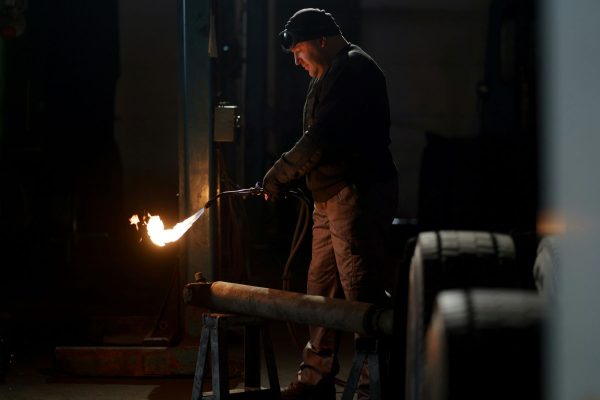The Foundation of Safe Gas Cylinder Handling
Selecting the appropriate firewall cart for gas cylinder transport represents one of the most crucial decisions facility managers and safety coordinators face. Gas cylinders contain pressurized materials that demand specialized handling equipment designed to prevent accidents, protect personnel, and maintain operational efficiency. The wrong cart selection can lead to catastrophic failures, regulatory violations, and significant financial losses.
Firewall carts serve as the primary barrier between potentially hazardous gas cylinders and facility operations. These specialized transport solutions must meet stringent safety standards while providing reliable mobility for heavy cylinder loads. Understanding the critical factors that differentiate quality firewall carts from substandard alternatives ensures workplace safety and operational success.
Understanding Firewall Cart Safety Standards
Modern firewall carts must comply with multiple safety regulations including OSHA guidelines, Department of Transportation requirements, and industry-specific standards. These regulations exist because gas cylinders pose inherent risks including pressure release, chemical exposure, and fire hazards. Proper firewall cart design incorporates multiple safety features that address these specific risks.
The firewall component itself must withstand extreme temperatures and provide adequate separation between cylinders and surrounding areas. Quality carts feature reinforced firewall materials that resist corrosion, impact damage, and thermal stress. Additionally, these carts must include secure cylinder restraint systems that prevent movement during transport while allowing quick access for emergency situations.
Essential Features for Reliable Gas Cylinder Transport
Primary Safety Components
When evaluating firewall carts, several critical features distinguish professional-grade equipment from inferior alternatives:
- Reinforced firewall construction using materials rated for high-temperature exposure and chemical resistance
- Secure cylinder restraint systems featuring adjustable straps or clamps that accommodate various cylinder sizes
- Heavy-duty wheels and casters designed to support substantial weight loads while maintaining maneuverability
- Ergonomic handle design that reduces operator strain during transport operations
- Corrosion-resistant finish that maintains structural integrity in challenging environmental conditions
Secondary Performance Features
Beyond primary safety requirements, quality firewall carts include additional features that enhance operational efficiency and longevity. These include removable or adjustable components that accommodate different cylinder configurations, integrated storage areas for related equipment, and modular designs that allow customization for specific applications.
Cost Implications of Poor Cart Selection
Choosing inadequate firewall carts creates hidden costs that far exceed initial purchase savings. Substandard carts require frequent repairs, replacement parts, and eventual complete replacement. More significantly, poor cart selection increases accident risks that can result in property damage, personnel injuries, and regulatory penalties.
Quality firewall carts from reputable manufacturers provide superior return on investment through extended service life, reduced maintenance requirements, and enhanced safety performance. The initial investment in proper equipment prevents costly incidents while ensuring consistent operational reliability. Facilities that prioritize cart quality typically experience lower total cost of ownership over the equipment lifecycle.
Regulatory Compliance Requirements
OSHA and DOT Standards
Compliance with federal safety regulations requires careful attention to firewall cart specifications and performance capabilities:
- OSHA 1910.253 mandates proper storage and handling of compressed gas cylinders including approved transport equipment
- DOT regulations specify requirements for cylinder transport vehicles and associated handling equipment
- Industry standards such as CGA (Compressed Gas Association) guidelines provide additional safety requirements
- Local fire codes may impose additional restrictions on gas cylinder storage and transport equipment
- Insurance requirements often specify minimum safety standards for handling equipment to maintain coverage
Documentation and Training Requirements
Proper regulatory compliance extends beyond equipment selection to include operator training, maintenance documentation, and regular safety inspections. Facilities must maintain records demonstrating compliance with applicable standards and ensure personnel receive appropriate training on firewall cart operation and safety procedures.
Operational Efficiency Benefits
The right firewall cart selection directly impacts daily operations through improved productivity, reduced labor requirements, and enhanced workflow efficiency. Quality carts enable operators to transport multiple cylinders safely, reducing the number of trips required and minimizing handling time. Smooth-rolling wheels and ergonomic design features reduce operator fatigue while maintaining safe handling practices.
Efficient firewall carts also support better inventory management by enabling organized cylinder storage and transport. This organization reduces time spent locating specific cylinders and helps maintain proper rotation of cylinder stock. Additionally, reliable carts reduce operational downtime caused by equipment failures or safety incidents.
Long-term Durability Considerations
Firewall cart durability depends on construction materials, manufacturing quality, and design engineering. Carts subjected to frequent use in demanding environments require robust construction that withstands repeated loading, transport cycles, and exposure to various environmental conditions. Quality manufacturers use proven materials and construction techniques that ensure extended service life.
Regular maintenance requirements vary significantly between cart designs and manufacturers. Well-engineered carts feature serviceable components, readily available replacement parts, and straightforward maintenance procedures. These factors contribute to lower long-term ownership costs and more predictable maintenance scheduling.
Making the Smart Investment in Safety
Selecting the right firewall cart requires balancing safety requirements, operational needs, and budget considerations. However, compromising on essential safety features or construction quality creates risks that far outweigh potential cost savings. The most effective approach involves partnering with experienced manufacturers who understand industry requirements and can provide guidance on optimal cart selection.
Anthony Carts specializes in manufacturing high-quality firewall carts designed specifically for gas cylinder transport applications. Our expertise in pallet and cart manufacturing ensures that each firewall cart meets the demanding safety and performance requirements of industrial gas handling operations. Contact Anthony Carts today to discuss your specific firewall cart requirements and discover how our solutions can enhance your facility’s safety and operational efficiency.


